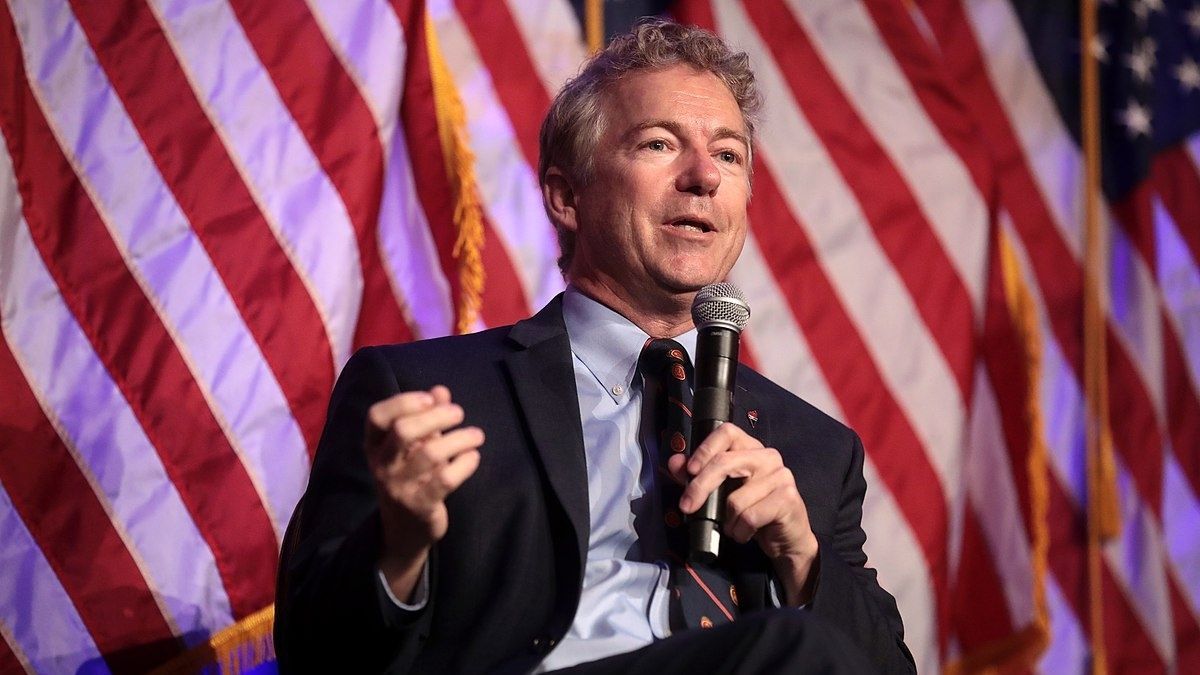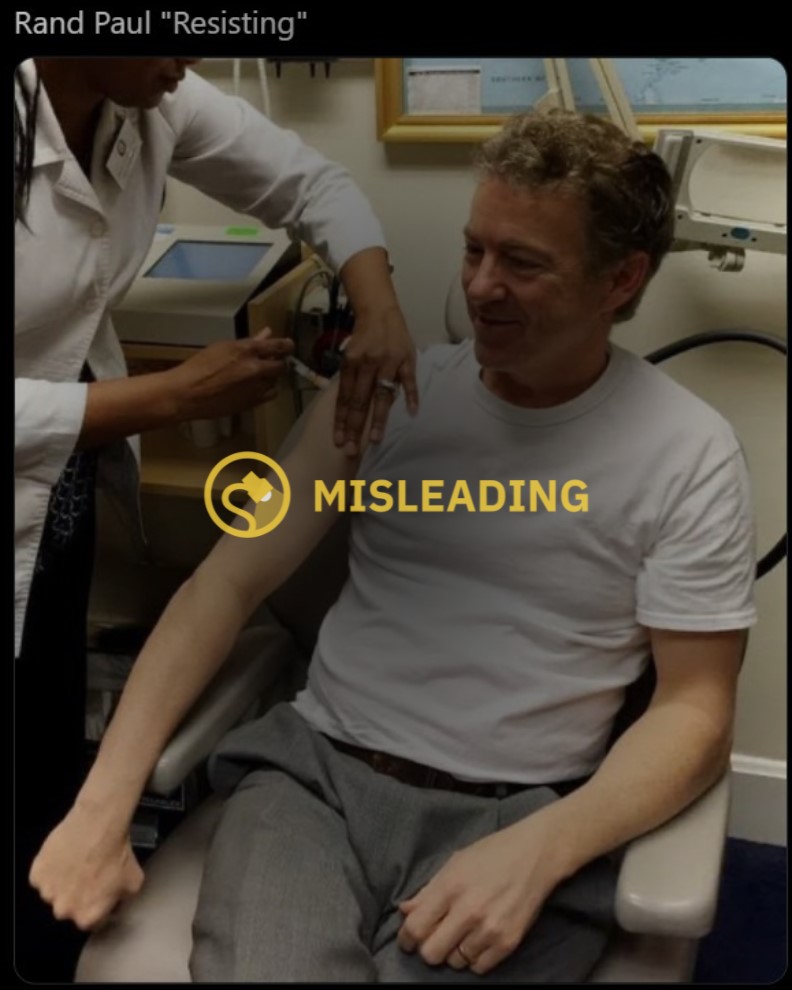A viral photograph shows Sen. Paul getting a booster vaccination for Hepatitis A in 2015, not a COVID-19 vaccination in 2021.
In August 2021, as a new wave of COVID-19 cases rose in Kentucky, U.S. Sen. Rand Paul urged Americans to resist mask mandates and other guidelines from the Centers for Disease Control and Prevention (CDC) related to stopping the now nearly two-year pandemic in a video posted to his Twitter account. Paul captioned his video:
We are at a moment of truth and a crossroads. Will we allow these people to use fear and propaganda to do further harm to our society, economy, and children? Or will we stand together and say, absolutely not. Not this time. I choose freedom.
As this video went viral, many Twitter users responded by posting a photograph of Paul that supposedly showed him receiving the COVID-19 vaccination. This photograph was frequently shared with captions claiming that Paul was a hypocrite, as he was urging others to "resist" the CDC while the picture supposedly showed him receiving a vaccine urged by the CDC.
This is a genuine photograph of Paul receiving a vaccine. However, it is not recent and does not show him getting a COVID-19 vaccination.
The picture was taken in 2015, and shows Paul receiving a booster vaccination for Hepatitis A from a physician at the U.S. Capitol. You can read more about the benefits of a Hepatitis A vaccine on this page from the CDC.
The New York Times reports that Paul received this vaccine shortly after he set off an "uproar" when he seemingly made anti-vaccination comments amidst a measles outbreak. The following day, the Kentucky senator invited a New York Times reporter to go along with him as he received a vaccination.
From the NY Times:
On Tuesday, Mr. Paul sought to clarify those comments, inviting a New York Times reporter to accompany him to the Capitol physician’s office to watch him receive a hepatitis A booster vaccination. During the visit, Mr. Paul said he believed that the science was definitive on the matter and that vaccines were not harmful.
“It just annoys me that I’m being characterized as someone who’s against vaccines,” he said as he rolled up his T-shirt sleeve before the shot. “That’s not what I said. I said I’ve heard of people who’ve had vaccines, and they see a temporal association and they believe that.”
As for the COVID-19 vaccinations, it doesn't appear that Paul ever received his vaccine. The senator tested positive for COVID-19 back in March 2020. Paul survived the ordeal and appears to have been largely asymptomatic. Afterward, Paul claimed that since he had COVID-19, there was no need for him to get the vaccine. This claim — that natural immunity provides better protection than vaccines — is disputed by the science.
On Aug. 6, 2021, the American Hospitals Association publicized two recent studies from the CDC that showed those with "natural immunity" were more than twice as likely to be reinfected than those who had received vaccines.
The AHA writes:
The Centers for Disease Control and Prevention today released a study confirming the comparative effectiveness of COVID-19 vaccines versus natural immunity, including immunity gained from prior SARS-CoV-2 infection. Researchers found that, among hundreds of Kentucky residents with previous infections through June 2021, those who were unvaccinated had 2.34 times the odds of reinfection compared with those who were fully vaccinated. CDC says the research suggests that among people who have had COVID-19 previously, getting fully vaccinated provides additional protection against reinfection.
A second CDC study, published concurrently, shows the extent to which vaccines prevented COVID-19-related hospitalizations among the highest risk age groups.


